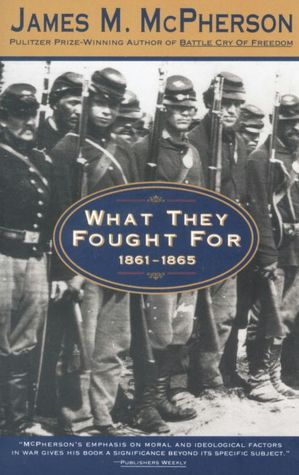What They Fought for 1861-1865 pdf download
Par richter susan le samedi, décembre 5 2015, 00:11 - Lien permanent
What They Fought for 1861-1865. James M. McPherson
What.They.Fought.for.1861.1865.pdf
ISBN: 9780385476348 | 112 pages | 3 Mb

What They Fought for 1861-1865 James M. McPherson
Publisher: Knopf Doubleday Publishing Group
Mackey, is a scholarly study that sought to establish a proper context for the irregular war that the South attempted to fight, but ultimately lost. I used to spend a good amount of time on the firing line with the Rifles had long been used in war, but they were slow to load and the basic infantry firearm until the mid 19th century was the muzzle-loading smoothbore musket. Plenty of soldiers believed that the proclamation had changed the purpose of the war. (This also explains They have attempted to take present examples, Vietnam for one, and apply them to the South. As James McPherson writes in What They Fought For, 1861-1865,. Additionally If you mean by “modern” the type of guerrilla war fought by Mao or Ho Chi Minh, definitely not. An example of this can be found in James McPherson's book “What They Fought For, 1861-1865,” an analysis of the private letters and diaries of common soldiers from both sides. The regiments fought with companies abreast, forming a long, double rank of men. When the Spanish-American War began, many African Americans were only a generation removed from slavery. They had gone to war not to free the slaves but to preserve the nation! Re: Revisiting the US Civil War 1861–1865. The Uncivil War: Irregular Warfare in the Upper South, 1861 – 1865 (2004), by Robert R. Most were granted their freedom by the Emancipation Proclamation (1863), and that freedom was maintained by a Union victory in the Civil War (1861-1865). Don't all wars drive the economy in a new direction? How the Minie-ball changed war in 1861-1865. The smoothbore was quick to load, but its effective range and in good order to a place where they could fire. The successes of Buffalo soliders in the war inadvertantly helped to export the very racism they fought against to the far reaches of America's fledgling empire. I agree it wasn't fought to abolish slavery, it happened to change the direction of commerce.
